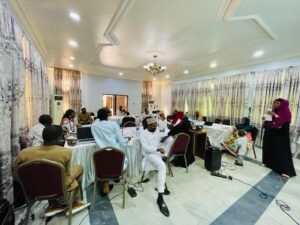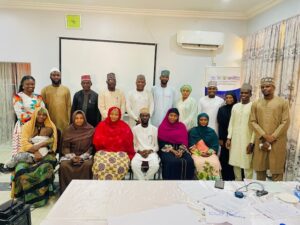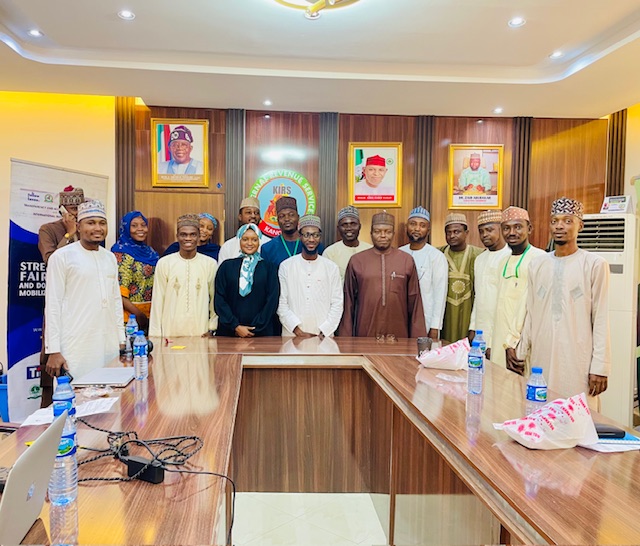By Mustapha Salisu
Transparency and Accountability in Totality (TinT), also known as FollowTaxes, has convened a review and reflection session aimed at assessing the potentials of Kano State’s informal sector in revenue generation and exploring evidence-based approaches for future tax programming.
The engagement, held for two days between Tuesday and Wednesday at the Kano State Internal Revenue Service (KIRS) office as well as Quarter House Hotel, Kano, was organized with support from the International Budget Partnership (IBP) under the Tax for Equity Project, which has been implemented in the state for the past three years.
Speaking during the session, Halliru Ahmad Khalifa, the Lead and Executive Director of TinT, said the meeting was designed to review findings from a recent research focused on the informal sector and to validate its outcomes with key stakeholders.
“Our engagement was basically to validate a research conducted to understand the potentials of the informal sector in terms of revenue generation, what they are currently generating and what they can potentially generate,” Khalifa explained.
He noted that the session also served as an “outcome harvesting and review meeting” to reflect on achievements and challenges since the project’s inception.
“Today, we’ve brought together different stakeholders including government actors, civil society organizations, and the media to harvest outcomes and identify focus areas for the next phase of the project,” he added.
According to Khalifa, feedback and recommendations from participants would guide TinT’s programming and policy advocacy efforts going forward.
“We do not want to preempt what we think is obtainable in Kano; we want to approach it from an evidence-based and consultative perspective. All outcomes will be harmonized into a single document to inform our future advocacy briefs, policy recommendations, and programming” he said.

Earlier in his presentation titled “Potential Revenue Simulation of the Kano State Informal Sector: Assessing Leakages, Compliance Gaps, and Reform Pathways,” Simeon Olatunde from the Tax Justice and Governance Platform, Kaduna, explained that the informal sector remains the backbone of Kano’s economy, employing thousands of people across major markets such as Kantin Kwari, Kasuwar Rimi, and Sabon Gari.
He noted that despite its vast scale, the sector’s tax contribution remains low. The study, according to him, highlights the revenue potential of the informal sector, existing leakages, and compliance gaps, as well as possible reforms to enhance fairness, transparency, and collection efficiency.
Mr. Olatunde identified the sources and channels of revenue leakages to include cash-based collections, unauthorized and multiple collectors, unclear and overlapping tax rates, receipt manipulation and non-issuance, as well as weak data and record systems.
He recommended harmonized collections through a One-Tax Policy, linking taxation to market services, strengthening transparency and accountability, providing business relief and support, improving communication and trust-building, and digitizing and decentralizing collections.
On his part, Nafiu Shehu Rikadawa, Special Assistant to the Executive Chairman of the Kano Internal Revenue Service, commended the initiative, describing it as a model for inclusive dialogue between the government, civil society, and the public.
“The session is something worth doing and should be imitated by all because it provides a platform for government agencies, civil societies, market women, and other groups to share knowledge and ideas that can improve revenue generation and accountability,” Rikadawa said.
He further emphasized the importance of research-driven policymaking, noting that recommendations from the session would be utilized to strengthen the state’s revenue systems and ensure that government policies reflect public interest.



